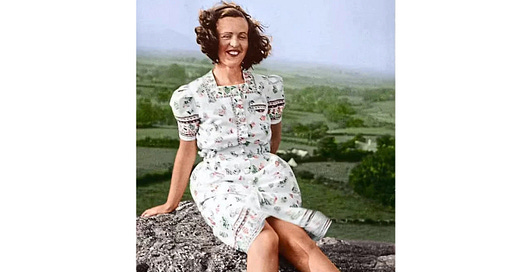In December of 2022, my husband and I came down with covid during a visit to Ireland and quarantined in a Killarney hotel for several days. I slept, choked on phlegm, and wondered whether I would ever be able to taste food again. But I had done some inspired packing: five Barbara Pym novels from mid-twentieth-century England. I had read a couple of them years before, but now I gulped all these with a pleasure that, it turned out, was not just circumstantial. During the next year I read them and Pym’s eight other novels so many times that I began to hold them in reserve the way I do Jane Austen (to whom Pym is often compared), out of paranoia that my delight would run out someday.
Freud noted that paranoiacs are hard to treat, because there’s always some truth to it. I remain leery of both authors failing me, because both do present a sort of perpetual motion machine: there is too little input in proportion to the output; the first law of thermodynamics seems to be violated. Both Austen and Pym thrived on little outward stimulation over most of their writing lives, and their protagonists get even less. Austen’s richest and most indulged heroine, Emma, complains playfully of never having seen the sea, a one- or two-day journey from her home in a fictional Surrey town. Fanny in Mansfield Park barely ever leaves the park until she is sent home to much greater confinement in her parents’ tawdry house. Throughout the Austen novels, pleasures flash intensely and prevail in the heart as if by miracles of sensitivity in these quiet, dim, and rain-blown lives. The young women cherish a walk, a dance, music, a few books—but above all a man with the “delicacy” to balance the female experience against his own in an actual conversation.
Keep reading with a 7-day free trial
Subscribe to Book Post to keep reading this post and get 7 days of free access to the full post archives.



